In the world of electronics and tinkering, soldering is a fundamental skill that bridges components to create functioning devices. However, this essential process can inadvertently expose hobbyists and professionals alike to potentially harmful fumes. For the avid DIY enthusiast concerned about safety, creating a 12V solder fume extractor can revolutionize your workspace, providing a cleaner, safer environment without breaking the bank.
### Understanding the Need for a Solder Fume Extractor
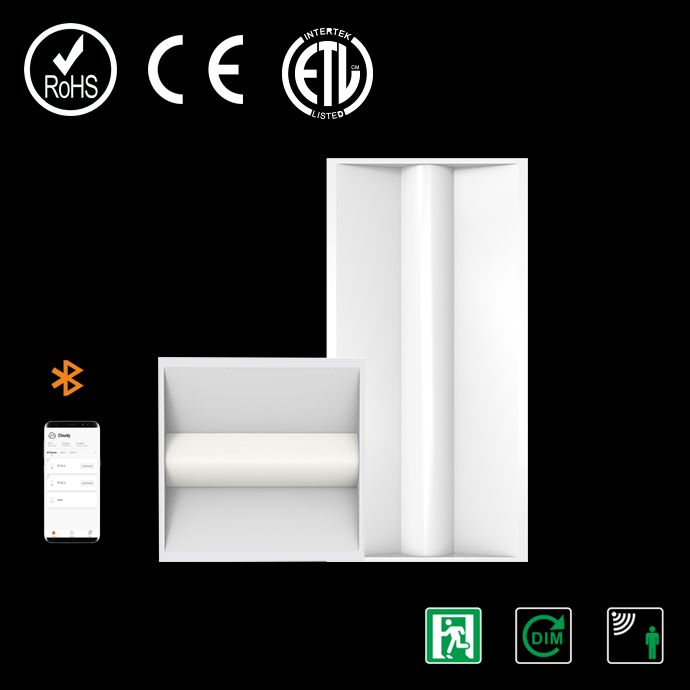
Soldering involves melting solder—a metal alloy composed primarily of tin and lead (or other metals in lead-free options)—to join electronic components. The heat from the soldering iron can release fumes that contain particulate matter and chemicals like rosin, which can be irritating to the respiratory system. Prolonged exposure can lead to health issues, emphasizing the importance of adequate ventilation and fume extraction.
### Choosing the Right Components
Creating an effective 12V solder fume extractor requires a selection of key components that ensure efficiency and portability. Here’s what you’ll need:
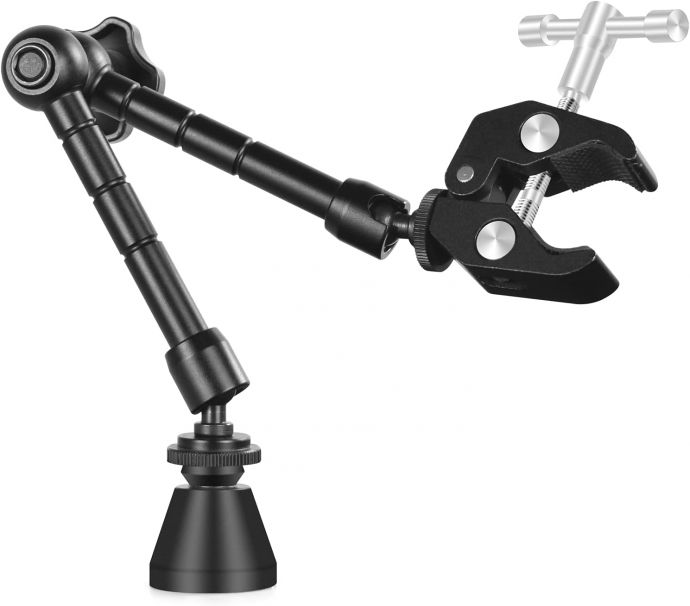
1. **12V DC Fan:** The heart of your fume extractor. Opt for a fan with a CFM (cubic feet per minute) rating that suits your workspace size. Larger workspaces may require a fan with higher CFM for more effective air circulation.
2. **Activated Carbon Filter:** Essential for trapping and neutralizing harmful fumes. These filters are highly effective in absorbing volatile organic compounds (VOCs) and other gases.
3. **Housing or Enclosure:** This holds the fan and filter securely. You can opt for a ready-made plastic or metal box, or if you’re feeling particularly hands-on, construct your own using available materials.
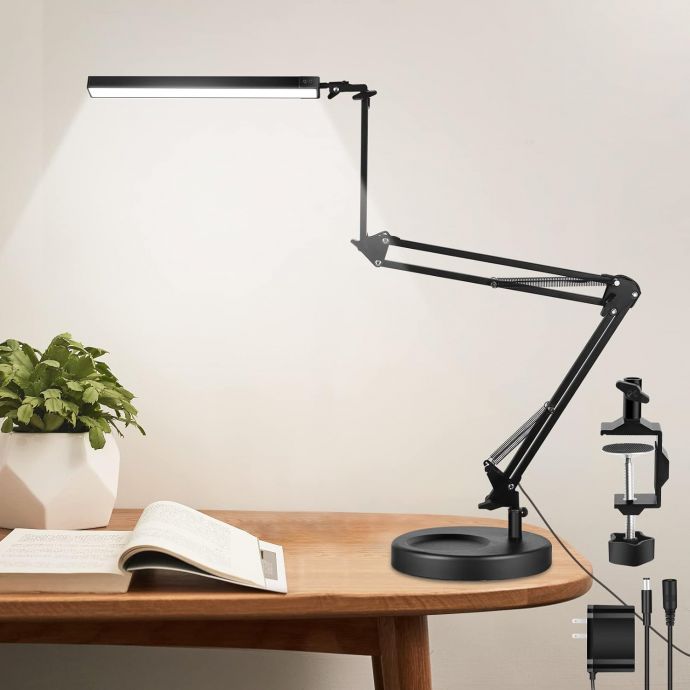
4. **Power Supply:** A 12V power adapter is necessary to power the fan. Ensure that the adapter matches the fan's voltage and current requirements.
5. **Additional Mounting Hardware:** Screws, nuts, and bolts will help secure all parts together. Rubber grommets can be used to dampen vibrations, making your fume extractor quieter.
6. **Solderless Connectors and Wiring:** For safe and easy connections between components.
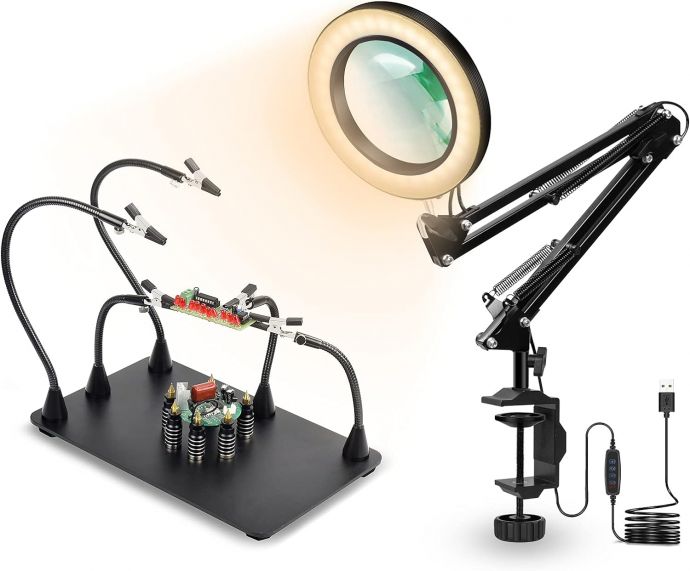
### Building Your Fume Extractor
Begin by designing your fume extractor setup. Consider the space where you typically work and how the extractor will be positioned. Ideally, it should be placed such that fumes are drawn away from your soldering area effectively.
1. **Assemble the Enclosure and Fan:**
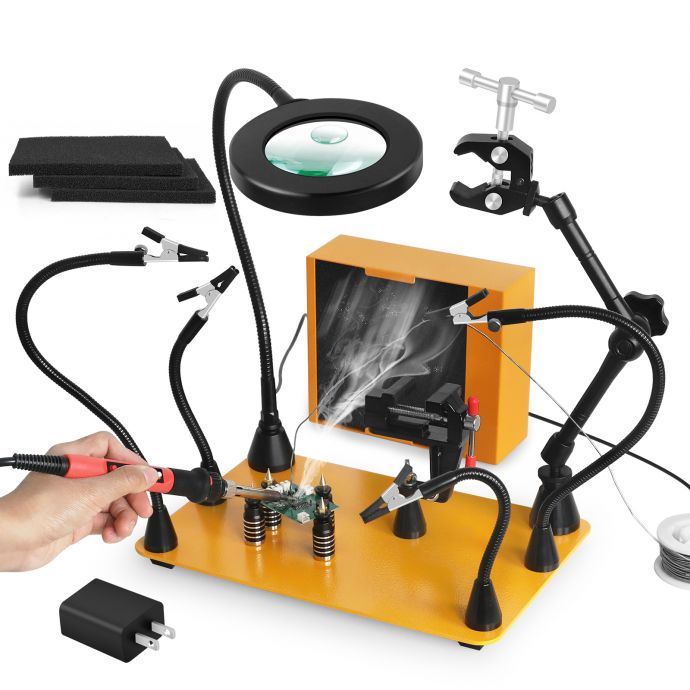
- Fix the fan inside your chosen enclosure. Ensure that the airflow is directed towards an exit point, such as a vent or an open window.
- Mount the fan securely, using screws and nuts. Use rubber grommets if necessary to minimize noise from vibrations.
2. **Install the Activated Carbon Filter:**
- Place the filter in front of the fan’s intake. This positioning allows the maximum amount of fumes to be processed through the carbon filter.
- If your enclosure doesn’t have a designated slot for the filter, consider creating a simple frame to hold the filter in place.
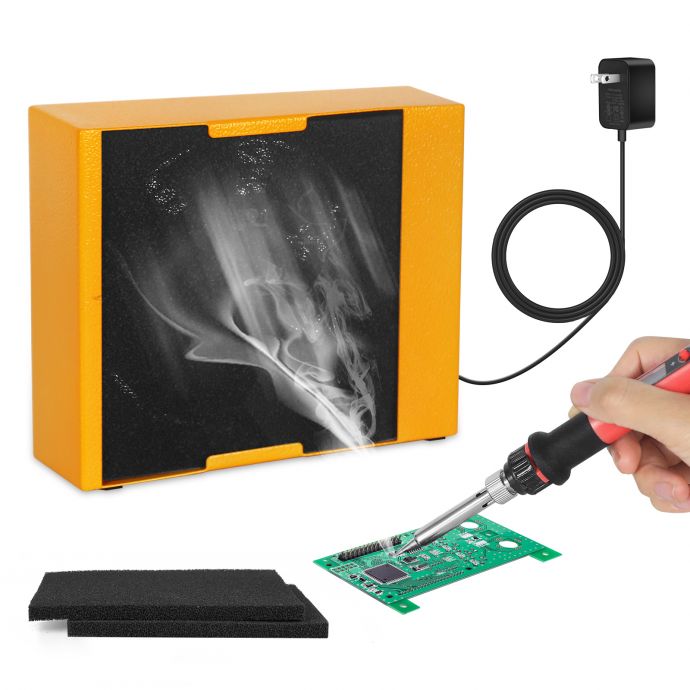
3. **Connect the Power Supply:**
- Hook the fan up to the 12V power adapter using solderless connectors. It’s crucial to ensure all connections are secure and insulated to prevent shorts.
- Test the fan and the filter setup to confirm they are functioning properly.
4. **Finish and Test:**
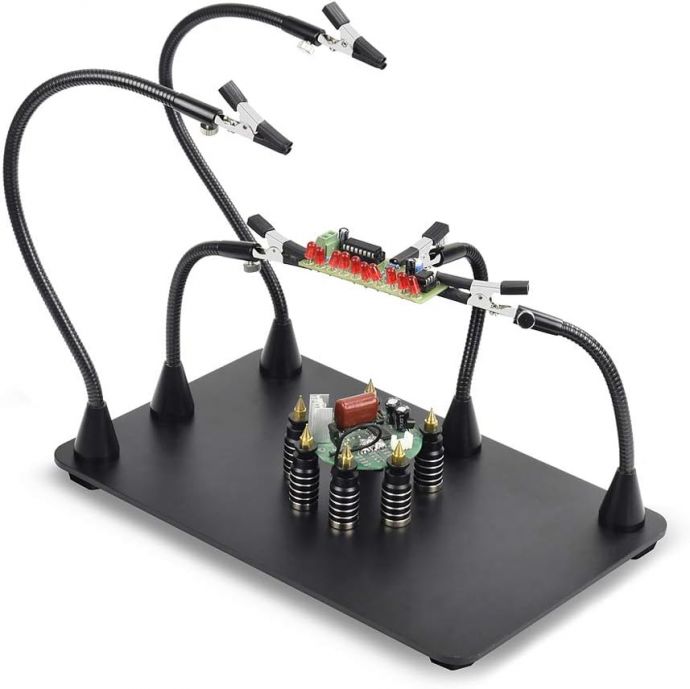
- Close up the enclosure, making sure that everything is tightened and secure.
- Power on your extractor and test it during a soldering session. Check if the airflow adequately pulls fumes through the filter.
### Optimizing for Performance and Convenience
Depending on your specific needs, further modifications can be made to improve efficiency or convenience:
- **Adjustable Stand or Mount:** To ensure the best position relative to your workpiece, consider creating an adjustable stand or arm for the extractor. This can be particularly useful for varied projects that may require different setups.
- **Noise Reduction:** If noise is an issue, select a fan specifically designed for silent operation. Housing can also be lined with sound-dampening material.
- **Portability Enhancements:** Adding a handle or reducing the overall weight of the enclosure can make your fume extractor more portable, perfect for carrying between different workstations or storage areas.
### Safety and Maintenance
While the fume extractor is designed to increase safety, regular maintenance is key to its effectiveness. Periodically check and replace the carbon filter to ensure it continues to properly absorb fumes. Keeping the fan blades clean from dust and debris is essential for maintaining optimal airflow.
Consider integrating proper safety protocols in your workspace, such as wearing a mask or ensuring additional ventilation. While fume extractors significantly reduce airborne pollutants, comprehensive safety measures are always beneficial.
### Embracing DIY Culture
Building your own solder fume extractor not only enhances your work environment but also embodies the spirit of the DIY culture. It’s a practical project that harnesses creativity and hand-on skills while addressing a real-world need. Beyond the immediate benefits of cleaner air, constructing your own equipment fosters a deeper understanding and appreciation for electronics and sustainability.
By taking the initiative to build a 12V solder fume extractor, you're safeguarding your health and investing in the longevity and productivity of your soldering endeavors. Whether you're a seasoned pro or new to the world of soldering, your journey into DIY mastery begins here, crafting a workspace that marries innovation with safety.









